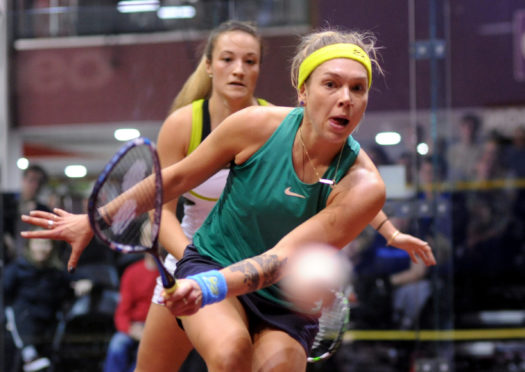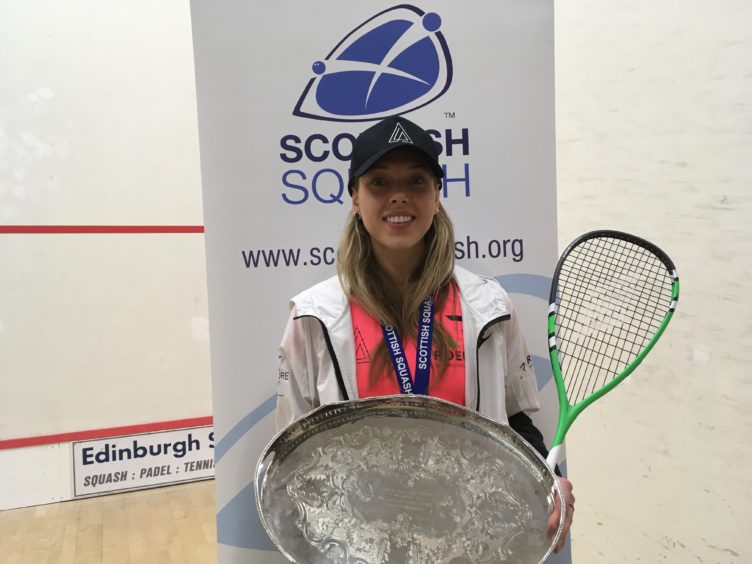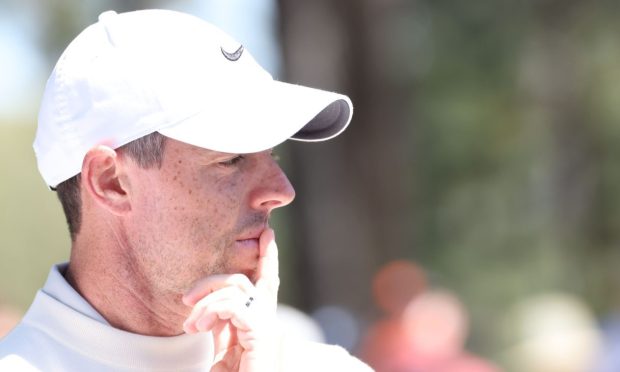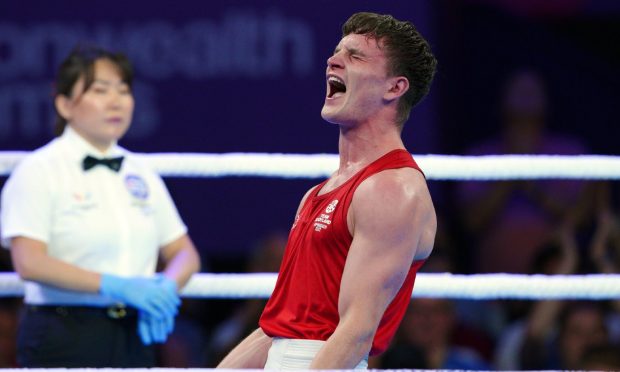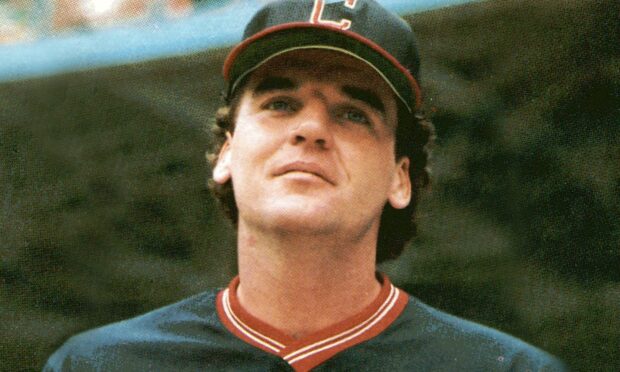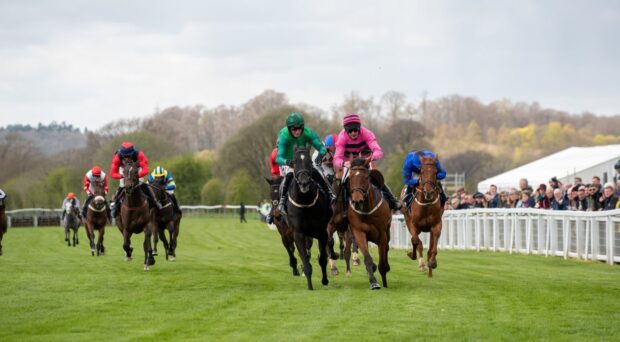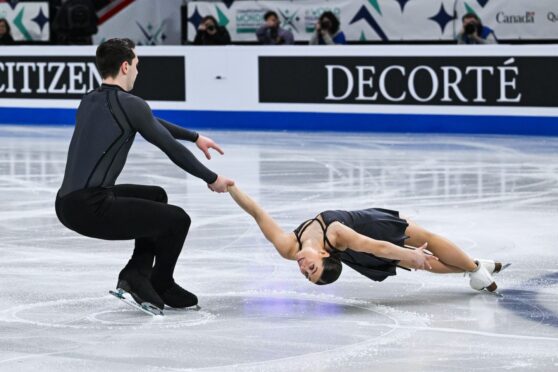Quarantine?
Been there, done that.
Months, stretching into years, of enforced absence from the sporting arena?
Tick. That as well. All very 2014.
If you’re looking to find an athlete perfectly placed to deal with the challenges of a long coronavirus shutdown, and to pass on some coping advice to those who may need it, try in Montrose.
Retreating to the family home in Angus, with exercise curtailed by the government, might be far removed from the norm of a squash player at the peak of her career. But Lisa Aitken has had it much, much worse.
When the Scottish champion contracted dengue fever, a mosquito-borne tropical disease, six years ago, partial blindness, hallucinations, vomiting, isolation and fear of the unknown all had to be dealt with in the early weeks. And then came the long, slow fight back to full health and elite athlete fitness.
Finding perspective comes easily. There really is no meaningful comparing and contrasting to be done.
“I’m healthy and I can actually get out for an hour a day this time for starters,” said Aitken. “My last quarantine was very different. So far this all feels OK.
“When I was quarantined with dengue fever it was while the doctors waited on results from my blood test. They didn’t know what it was originally or if it was contagious.
“So I was maybe in isolation for about five days at Leeds until they got the test results and then I was in a normal ward. Nobody could catch if off me – you can only get it from being bitten by a mosquito.
“There were extreme symptoms and it was horrible to go through but that part of it didn’t last too long. There was about a year of needing assistance with the most basic things like showering and making food after that.
“The period between feeling like I could leave the house to actually having a run lasted about six months. It was trial and error from then on.”
Aitken is a student at Heriot-Watt University in Edinburgh, one year into a brewing and distilling degree (more of which later). The plate-spinning for a top-40 in the world athlete has inevitably seen a few shatter into pieces on the floor.
“This is obviously a very stressful and anxious time for a lot of people just now,” she said. “But for me the whole year has been a bit of a stressful and anxious time.
“I’ve been trying to deal with being a full-time athlete and having full-time studies.
“It seems a bit trivial in relation to what’s happening in the world but I’m kind of welcoming being told to stop and slow down. It’s given me time to breathe and get grounded again.
“You’d have thought I’d have mastered being able to live in the moment and checking with myself that I’m alright by now – asking myself things like ‘am I going too fast?’ and ‘am I stressed?’
“Before I got dengue fever I was so caught up in my sporting world and striving to be the best to the detriment to my mental health and personal relationships. Everything else suffered.
“When I was forced into stopping I was able to think about what I was doing to myself and reflect. What can I change? What can I control? What can’t I control?
“That was a massive lesson and there are things I’ve taken from then to now. I have a psychologist and I work with a lifestyle adviser through the Scottish Institute of Sport. I work with them every week to try and make sure I keep on top of the little things.
“It is hard when you’re focused on being the best athlete and student. It’s a very fast-paced environment. And that’s the sort of environment I thrive on. But pushing yourself can’t be to the detriment of your physical health and mental health, though.
“That can spiral out of control very quickly.
“Everyone just now – not just people in sport – has a great opportunity to slow down and check themselves.
“In this day and age nobody wants to go slow, which makes staying isolated and not doing much so challenging. This current lifestyle we all have is very daunting but it can be a positive.
“We’ll start a fast –paced lifestyle again and hopefully we’ll be better-equipped to deal with it.”
Fixating on long-term career goals won’t be the Aitken mindset as long as the pandemic keeps her off a squash court. And the same will apply when she and her sport emerge from the current hiatus.
“I’ll have a checklist,” said the 30-year-old. “With the squash and studies it will be really important my time management is spot on. What is the purpose of today? What is the purpose of this week? That will help me stay on track. Setting little goals. It doesn’t have to be ground-breaking.
“At the moment I’ve been making sure I do something for my physical fitness, something for my mental well-being and something for somebody else. I can then go to sleep and feel I’ve been purposeful and productive.”
Shortly before the lockdown, Aitken became Scottish singles champion for the fourth time, securing three in a row without dropping a game. Domestic success isn’t the barometer of her season, however.
“Unfortunately it has been my worst season to date,” she explained. “I think I started off 35th in the world and dropped down to 42nd.
“As nice as it obviously is to win the national title, it’s not a benchmark of where I should be.
“But it’s not too drastic to see how I can get back to where I want to be.
“I knew it would take time to adjust to starting university. Frustratingly, I was getting to the point of getting adjusted when we had to stop. I’ve had a year of settling in now. I know what the timetable is like and I’m looking to get back to 35 and beyond whenever our season starts again.
“It normally ends in May so it’s definitely over. We’ll be hoping to start back up again in September.”
So the whisky thing. How did that become a passion and now future employment?
“Many years ago my dad (Steve) made it his mission to collect a bottle of whisky from every distillery that Scotland has ever had,” Aitken recalled.
“What used to be a kids toy room is now a whisky room. He’s got a massive collection in there.
“I just wanted to hang out with him so I went to auctions. I wasn’t interested in whisky and I definitely didn’t like the taste. The more I learn about it, the more interested I became.”
A career path has opened up even if the “dream job” is highly likely to prove out of reach. Mind you, with Aitken’s focus and drive, you wouldn’t write it off entirely.
“That would be owning my own whisky company,” she said. “But I think I’ll need to find a large rainbow with a large pot of gold at the end of it to make that happen!
“There are so many areas I could go into with brewing and distilling, though.
“I’ve been fortunate to get a scholarship with Diageo. They’re going to be mentoring me and I’ll be getting work placements with them. There will hopefully an opportunity to work for them if I play my cards right.”
And Aitken has even arrived at the enjoying the taste bit of the whisky adventure.
“I absolutely love it now,” she said. “It’s one of the reasons I wanted to do this course. Apparently if you taste something 10 times you end up liking it, so that must have happened to me. I’m not drinking too much at the moment, however, I should add!”
